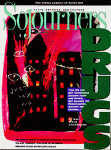Our individual and collective inability (or at least reluctance) to discuss the issue of racism openly and frankly—and to struggle actively with it with colleagues, family members, parishioners, and friends—keeps the cycle of oppression repeated and reinforced. Joseph Barndt's Dismantling Racism: The Continuing Challenge to White America will be greeted with gratitude and relief by anyone who has tried to wrestle with the issue of racism in a personal relationship or a professional setting.
Barndt—a pastor in New York City and co-director of Crossroads, a ministry working to dismantle racism and build a multicultural church and society—has been working on issues of racial justice for decades. In Dismantling Racism, he has boiled down years of experience, insight, and wisdom into a clear, readable, no-nonsense, and honest volume.
Barndt's overall analysis is superb. He addresses the social, political, and economic realities in this country with such simplicity and clarity that reading this book is like looking through a camera lens at a vista that at first appears blurry but is suddenly, dramatically, brought into focus.
In the first chapter, Barndt discusses what he calls the "continuing evil of racism"—how the roots of racism are "embedded and intertwined in the life and history of the United States." A dynamic tension is created between the despair and disappointment of the past and a sense of hope for the future.
Barndt straightforwardly jumps into the thorny question, "What is white racism?" He achieves the rare and remarkable balance attempted by so many but accomplished by so few: He places the problem of racism directly in the laps of white people...without placing blame or inspiring guilt in the process.
The section that defines and explains racism, and clearly and boldly names it as a white problem, is skillfully written. White people—even progressive and well-intentioned white people—often stumble and balk over this concept. But Barndt answers every conceivable question with a rare combination of directness and grace.
Barndt further describes what are often called the three manifestations of racism in America—individual racism, institutional racism, and cultural racism. Having worked with scores of white people as they struggle with these distinctions, I was delighted to find that an entire chapter of Dismantling Racism is devoted to each form of racism, providing countless examples and analogies.
IN THE FINAL CHAPTERS, Barndt directly addresses the issue of racism and the church. Throughout, the reader is aware that the book is written by a person of faith—specifically a Christian. Barndt ends the book by speaking directly to members of the Christian community—analyzing passages from the Bible, discussing the history of the "two churches," and beckoning all Christians to hear the call to become active anti-racists.
The final chapters contain some of the strongest language and images in the entire book; and they also present the greatest problems. His ability to speak with such force directly to the Christian community may distance those readers of different, or undefined, faith.
Barndt is passionately clear about what he wants Christians to do. For those of us in the Christian community, the closing chapters are a profound call to action, a mandate for change, and a loving invitation to respond to a calling.
I recently finished the post-war classic on race relations in America, Gunnar Myrdal's An American Dilemma: The Negro Problem and Modern Democracy. What a distance we have traveled since the mid-1940s! The distance was evident not only in the contents of the two books, but in their very titles. Myrdal believed that the roots of the "dilemma" lay with black Americans—the population targeted by racism.
Barndt demonstrates in the title and throughout the book that dismantling racism is the "continuing challenge to white America." He has named the problem and provided us with the analysis, vision, and concrete steps to continue to meet this challenge.
Rev. Barndt's book may become another classic in the field. It moves us along on our journey as individuals and as a nation. We are a collective body continuing to march toward freedom and justice, and while dramatic changes have occurred in the last several decades, we are still marching. With this in mind, I finished this book with a rush of gratitude—grateful that we have a man who is an ally, a role model, a visionary, and a workhorse marching on this journey right at our side.
Dismantling Racism: The Continuing Challenge to White America. By Joseph Barndt. Augsburg Fortress, 1991.

Got something to say about what you're reading? We value your feedback!